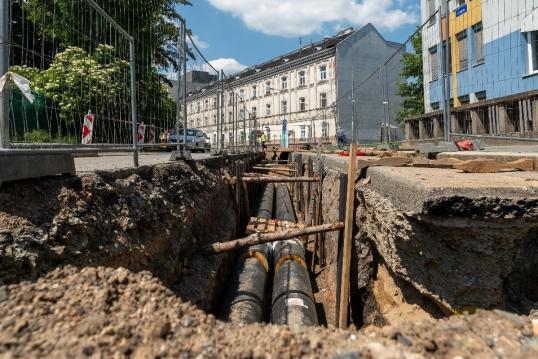
The KeepWarm project, funded under H2020 Energy Efficiency, worked to accelerate investments to retrofit existing inefficient heat networks, improve system operations, and switch to renewable energy and waste heat sources.
Thanks to the project activities, district heating retrofitting works started in sixteen pilot sites in in Austria, Croatia, Czech Republic, Latvia, and Slovenia. Two Contracting Parties of the Energy Community, Serbia and Ukraine, took also part in the project with pilot sites.
KeepWarm has also provided concrete recommendations to policy-makers for the development of National Energy and Climate Plans (NECP) in the seven target countries. At the same time, the project influenced the inclusion of district heating retrofitting into Sustainable Energy and Climate Action Plans and similar municipal plans in Jelgava (Latvia), Celje (Slovenia), and Zhytomyr ( Ukraine), as well as into regional planning in Styria (Austria).
The project facilitated knowledge transfer and exchange of experience through newly developed training resources (available in multiple languages) complemented with material from numerous sources, which are accessible in one hub: the KeepWarm Learning Centre.
District heating currently represents 12% of heat supply in the European Union[1] . Whilst modern systems can significantly contribute to a more efficient use of resources and the integration of renewable energy, some of the existing systems are still highly inefficient and heavily reliant on fossil fuels.
Success stories from the pilot sites are:
In Priboj, Serbia, KeepWarm contributed to the decision to replace heating pipes and substations as well as fuel oil boilers with a wood chip plant, for a total investment amounting to EUR 7 million. The project is already contributing to local job creation.
In Croatia, the operators of the district heating system of Zaprešić decided to connect heating stations into a single network. The system will also integrate large-scale solar collectors’ field as well as solar collectors installed on the roof of one of the heating stations.
In Eibiswald, Austria, the KeepWarm project has supported the decision to invest EUR 7.2 million to rebuild a boiler house, install an exhaust gas recirculation to increase efficiency, and expand the grid to connect new customers.
Project partners have facilitated the new investment plan of the district heating company in Brno, Czech Republic. A modern distribution network running on hot water will replace 27 km of inefficient steam pipelines by 2023, reducing energy losses in the distribution from 18% to 6% and contributing to 664 TJ of primary energy savings every year.
Update on energy efficiency project funding under the next MFF 2021-27
Energy efficiency projects will continue to be supported under the Horizon Europe and LIFE programmes in the new Multi-annual Financial Framework 2021-2027. Cluster 5 ‘Climate, Energy and Mobility’, of Pillar 2 Global Challenges and European Industrial Competiveness, continues research and innovation activities in energy efficiency under Horizon Europe. The sub-programme Clean Energy Transition, under the proposed LIFE programme, will support capacity building and diffusion of knowledge, skills, innovative techniques, methods and solutions for the transition to renewable energy and increased energy efficiency.
Works for the modernisation of the district heating system in Brno, Czech Republic. Credit: Association for District Heating of the Czech Republic.
[1] Communication from the Commission to the European Parliament, the Council, the European Economic and Social Committee and the Committee of the Regions, A Renovation Wave for Europe -greening our buildings, creating jobs, improving lives, SWD(2020)550final, pp. 23-24.
Details
- Publication date
- 9 February 2021

